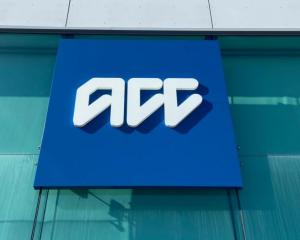Tax changes in the May Budget have distorted company accounts by more than $1 billion, making the reporting of recent financial results misleading, two leading company directors say.
"The bizarre impact on certain companies is so material that their financial statements will arguably not present a `true and fair view' as the market perceives that term," Tony Frankham and Rob Challinor said yesterday.
The danger was that many people would not understand deferred tax liabilities were merely accounting entries to comply with the rigid application of the international accounting standards New Zealand companies were obliged to use.
Deferred tax liabilities said nothing about the company that was useful to shareholders, potential investors, directors or managers, the two men said.
"They are pointless in the sense that they are measuring something that has no practical application or purpose.
"They are non-cash, have no relevance to underlying or future performance and will not affect the ability to pay dividends."
Worse still, they created charges at the level of net profit after tax (npat) which would seriously distort the earnings of many companies, Mr Frankham said.
The combined effect on New Zealand companies would be more than $1 billion in terms of reported bottom-line earnings.
"This is a serious understatement of the performance of corporate New Zealand, which is likely to be misunderstood and misreported and thus mislead investors and others.
"We think it impacts the credibility of the accounting profession," he said.
The Otago Daily Times attempts to use earnings before interest, tax, depreciation and amortisation (ebitda) - whenever possible - to indicate the financial status of a company.
Ebitda is the operating profit before any charges are taken out.
Last Friday, shares of both Telecom and Michael Hill International were hammered by investors after analysts focused their attentions on the reported profit instead of ebitda.
Telecom's June 30 ebitda was only 0.2% down on the previous corresponding period, but its reported profit was down 20.9%.
The shares fell 6c as a result.
The Michael Hill June operating profit was up 38.4% on the previous period, but commentators focused on the profit after tax, which was down substantially at $26.5 million compared with $66.8 million in 2009.
However, Michael Hill had the benefit of a $50.2 million tax credit last year.
Without that credit, the 2009 profit after tax would have been $16.6 million and the 2010 profit would have been nearly 60% higher.
This newspaper described both results in positive terms, given that trading conditions had been tough for both companies, while other commentators wrote them both off as a sign of continuing troubles.
Next year, the problem will be reversed if commentators continue to focus on net profit after tax.
Most companies can expect to see a huge reversal in that profit, on paper, because the Government tax changes will not have to be included in next year's results.
They are for this year only.
Mr Frankham said he and Mr Challinor had the support of 19 other senior directors, who had written to the International Accounting Standards Board about the issue.
The depreciation changes:
• If someone buys a building for $100 million and has claimed $20 million in depreciation, the building will have an accounting value, or book value, of $100 million and a tax value of $80 million. The so-called temporary difference is reflected in deferred tax liabilities.
• The $80 million will no longer be depreciable for tax purposes under the new Government policy so the tax value of the building will fall to zero, increasing the difference between the tax value and accounting value and the deferred tax liability.












